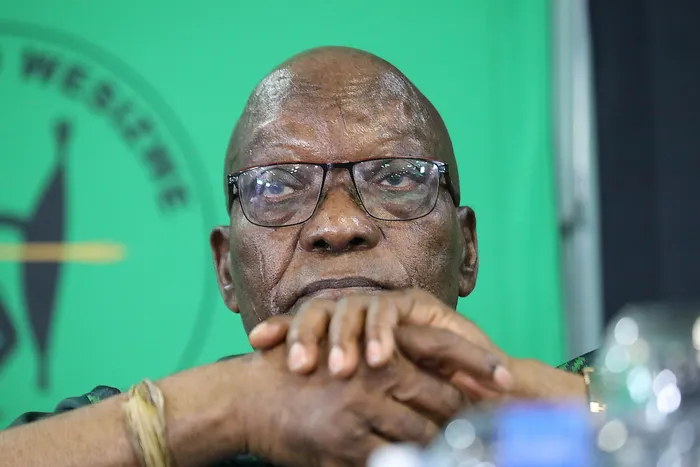
Former president Jacob Zuma is ordered to pay back R28.9 million in legal fees.
Image: Independent Media
FORMER President Jacob Zuma could have his immovable and/or movable properties including his state pension attached if he fails to pay back the money incurred during his private litigation over the years - all of the slightly more than R28.9 million.
The interest is on R18.9 million, running from 25 January 2024 to the date of payment.
Gauteng High Court, Pretoria Judge Anthony Millar ordered Zuma to make this payment to the State Attorney - R28,960,774,34 - as well as pay interest as calculated at the prescribed rate.
In the event that Zuma fails to satisfy the judgment debt in this matter within 60 days of the date of the court’s order, the judge directed the State Attorney to have a writ of execution issued by the Registrar of this Court for the attachment and sale of his immovable and/or movable properties to satisfy the judgment debt.
This includes his presidential pension benefit, or portion thereof, if required and subject to an order of court authorising that such attachment order can be issued.
Judge Millar also ordered that the State Attorney must report on affidavit, to the court within three months of the date of the order, and thereafter every three months until Zuma’s debt is paid.
The State Attorney must report to the court on the steps it has taken to obtain the money or the steps it intends to take to get the money.
Zuma’s lawyers had argued that their client was not granted the money in the first place through corruption and that his legal fees were paid from the State coffers following wrong legal advice to the state.
They maintained that Zuma, the former president, was the victim in all of this as he was not the one who acted unconstitutionally.
Advocate Thabani Masuku had remarked that it was very odd that the actual perpetrators - the State - are cleared, while Zuma must face the music. “It is not his fault that they made unlawful payments.”
He added that Zuma stands to lose his home and his pension if he is ordered to pay the money back, while this is all the State’s fault.
Cape Times
Related Topics: